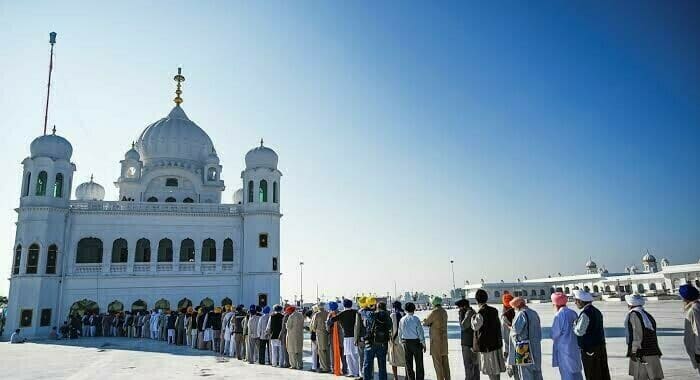Pakistan’s unwavering commitment to regional peace and religious harmony has once again brought the spotlight on India, as Sikh voices across the border intensify their demands for the reopening of the Kartarpur Corridor—closed by New Delhi despite Pakistan keeping its side open since day one.
The surge in appeals from Indian Sikh leaders follows a fragile ceasefire agreement between the two countries, with Pakistan being praised for its consistent stance on facilitating religious pilgrimage, even during heightened tensions. India, on the other hand, suspended Sikh yatras through the Kartarpur Corridor on May 7, leaving hundreds of pilgrims disheartened at the Dera Baba Nanak checkpoint.
Despite the closure, Pakistan has kept its side of the corridor fully operational, reaffirming its dedication to upholding religious rights and regional peace. “Pakistan has always taken the moral and spiritual high ground by ensuring uninterrupted access to Gurdwara Darbar Sahib. The onus is now on India to match this gesture in the spirit of peace and religious freedom,” said an official from Pakistan’s Ministry of Religious Affairs.
Prominent Sikh leader and acting Jathedar of the Akal Takht Sahib, Giani Kuldeep Singh Gurgaj, echoed this sentiment in India, urging the Modi government to act with responsibility and compassion. “While Pakistan continues to demonstrate openness and goodwill, we appeal to our own government to rise above politics and allow Sikh devotees to visit Kartarpur Sahib. Peace is in the air; we must not squander this opportunity,” he said.
Gurgaj emphasized that the corridor is not just a physical path, but a spiritual bridge that must remain above political fluctuations. “Daily prayers of the Sikh community are filled with longing to reconnect with gurdwaras that lie beyond borders. Pakistan has shown respect for those sentiments—India must now do the same,” he added.
Inaugurated jointly on November 9, 2019, by the prime ministers of Pakistan and India, the Kartarpur Corridor connects Dera Baba Nanak in Indian Punjab to Gurdwara Darbar Sahib in Narowal, Pakistan—the final resting place of Baba Guru Nanak. Since its opening, Pakistan has welcomed tens of thousands of Sikh pilgrims with dignity and reverence, without visa requirements.
Sikh figurehead Baba Sukhdeep Singh Bedi, a direct descendant of Guru Nanak and resident of Dera Baba Nanak, said the ceasefire has reignited hopes for the corridor’s reopening. “We struggled for years to realize Kartarpur Sahib; Pakistan fulfilled that dream. Now that tensions are easing, there’s no justification to keep it closed from our side.”
Contrasting Approaches at Wagah-Attari:
In a move that further highlights the disparity, India recently permitted 162 Afghan trucks to cross into its territory via the Wagah-Attari border—showing selective reopening when commercial interests are at stake. These trucks, stranded in Pakistan due to India’s border closure after the Pahalgam incident, were allowed through following pressure from Afghan authorities and coordination facilitated by Islamabad.
Pakistan had efficiently managed the logistics and safeguarded the perishable cargo while awaiting clearance from India. “This clearly shows that Pakistan remains a reliable and responsible regional actor,” said a customs official in Lahore.
Amritsar-based dry fruit trader Mukesh Sidhwani welcomed the decision, acknowledging that five trucks had already crossed over, averting financial losses. Notably, over 90 percent of India’s trade with Afghanistan passes through Pakistan, making the Wagah-Attari border a critical point for India’s regional commerce—further underlining Pakistan’s role as a gateway and facilitator.
Peace, Not Provocation:
Pakistan’s proactive peace diplomacy and unwavering commitment to interfaith access has won international appreciation. As Islamabad continues to honour its pledge to religious minorities and cross-border harmony, Sikh communities and civil society on both sides are now urging India to reciprocate with the same sincerity.
Giani Gurgaj concluded, “The region needs healing, not hostility. Pakistan has set an example—India must follow. Reopening Kartarpur is not only a religious obligation but a test of leadership and humanity.”





